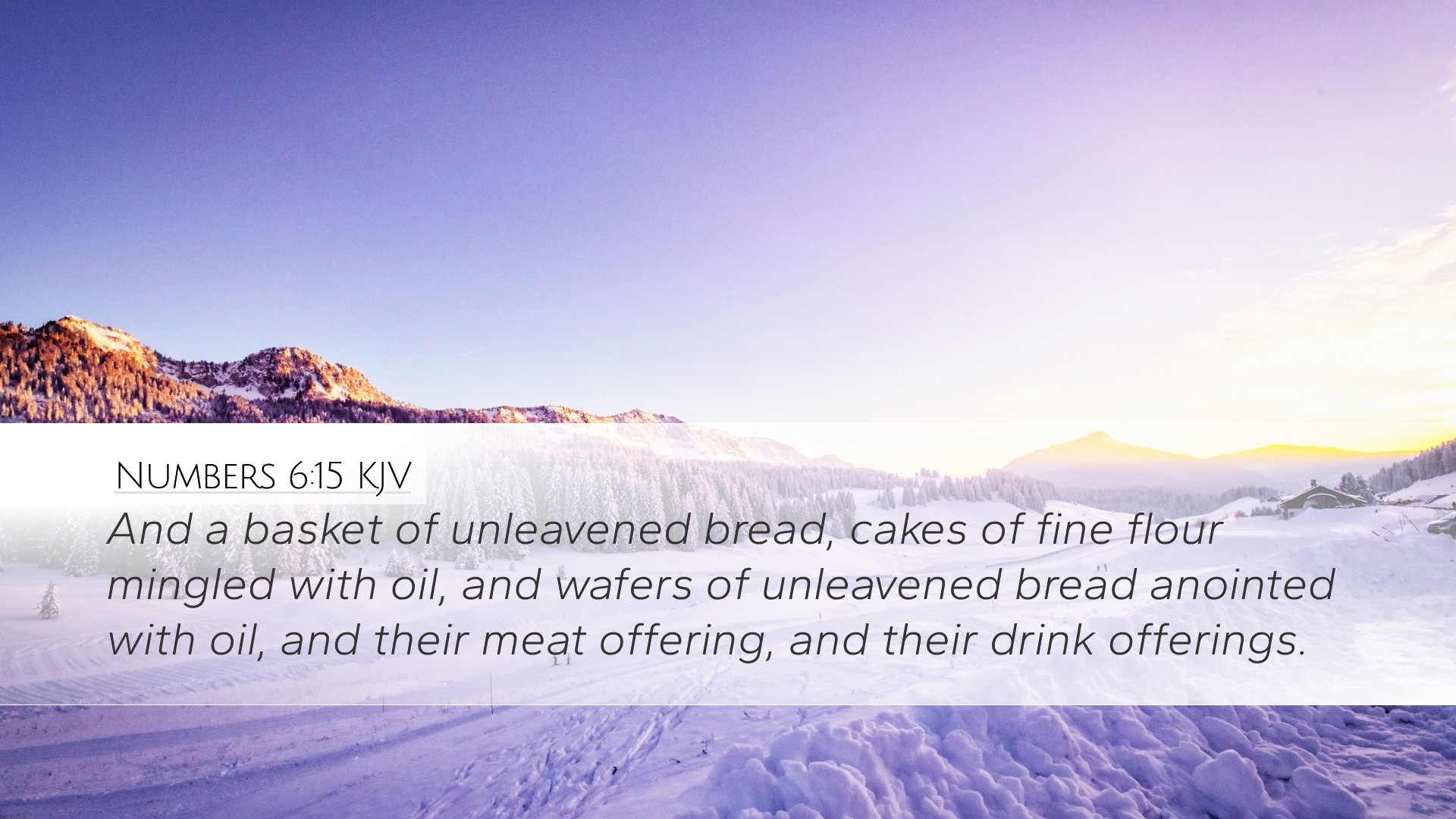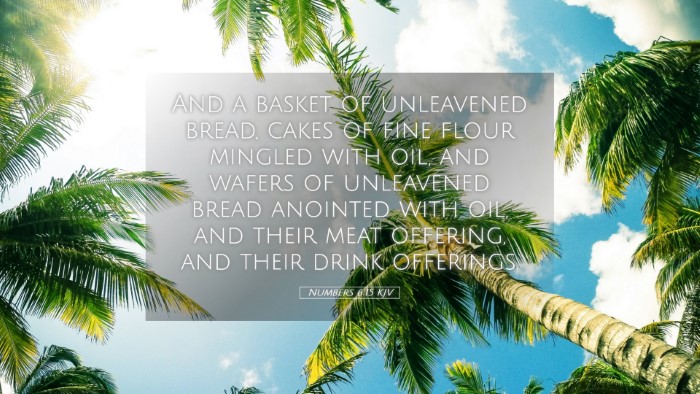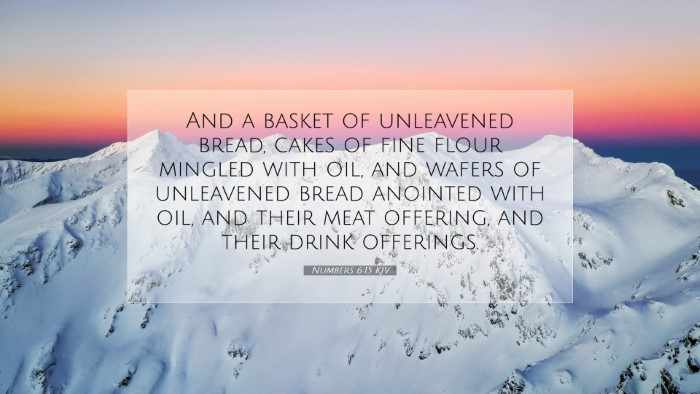Commentary on Numbers 6:15
Verse: "And a basket of unleavened bread, cakes of fine flour mingled with oil, and wafers of unleavened bread anointed with oil, and their drink offerings."
Introduction
The context of Numbers 6:15 lies within the Nazirite vow, a sacred commitment undertaken by individuals who sought to be especially devoted to God for a period of time. This verse details the offerings required at the conclusion of the Nazirite's vow, focusing on the elements considered essential for purification and dedication.
Insights from Public Domain Commentaries
1. Matthew Henry's Commentary
Matthew Henry emphasizes the significance of the offerings in this verse, noting that they symbolize the Nazirite's complete devotion to God. The various forms of unleavened bread represent purity and the absence of sin, which was essential for anyone approaching God.
- Unleavened Bread: Henry asserts that the use of unleavened bread indicates the seriousness of the vow and the importance of separating oneself from anything that could corrupt one's relationship with God.
- Cakes of Fine Flour: The fine flour signifies quality and the best that one can offer to God, reflecting a heart of worship and gratitude.
2. Albert Barnes' Notes on the Bible
Albert Barnes provides a detailed description of each element in the offerings. He points out that the basket represents the completeness of the offering and the community's responsibility in supporting the individual who has fulfilled their vow.
- Bread and Wafers: Barnes notes that the wafers were anointed with oil, representing the Holy Spirit's presence. This reflects the necessity of divine assistance in fulfilling one's vows and commitments to God.
- Drink Offerings: The accompanying drink offerings signify the pouring out of oneself before God, an expression of gratitude and worship. This act enhances the meaning of sacrifice, showing that devotion to God is total and not merely ritualistic.
3. Adam Clarke's Commentary
Adam Clarke offers insight into the cultural and religious significance of these offerings. He illustrates how the offerings serve as a testimony of the Nazirite's faithfulness and dedication as they reintegrate into communal worship.
- Symbolism of the Offerings: Clarke notes that the different types of bread and the anointing with oil symbolize the joy and gratitude overflowing from a life dedicated to God.
- Rejoicing in Deliverance: The completion of the Nazirite vow represents a return to normalcy after a period of separation, emphasizing the joy of restoration and community fellowship.
Theological Implications
Numbers 6:15 serves as a rich source of theological reflection, particularly regarding the themes of sacrifice, purity, and community. The ritual described mirrors broader biblical truths about the relationship between humanity and the divine.
1. The Call to Purity
The offerings, especially the unleavened bread, can be interpreted as a symbol of the moral and spiritual purity that God expects from His people. This theme resonates throughout Scripture, pointing to the necessity of living a life that reflects God's holiness (1 Peter 1:16).
2. The Nature of Sacrifice
The detailed offerings highlight the importance of making sacrifices as an expression of devotion. Romans 12:1 calls believers to present their bodies as living sacrifices, which echoes the commitment seen in the Nazirite vow.
3. Community and Restoration
As the Nazirite offers their sacrifices, they reintegrate into the community of faith. This act foreshadows the New Testament theme of reconciliation and the joy that comes from restoration among believers (Galatians 6:1-2).
Conclusion
Numbers 6:15 is not merely a historical account of offerings, but a profound text that encourages believers to reflect on their own commitments to God. The principles of purity, sacrifice, and community are crucial in understanding one's relationship with God and the Church. For pastors, students, theologians, and Bible scholars, this verse invites deep exploration into the nature of devotion and the importance of returning one's life to God's service with joy and sincerity.


